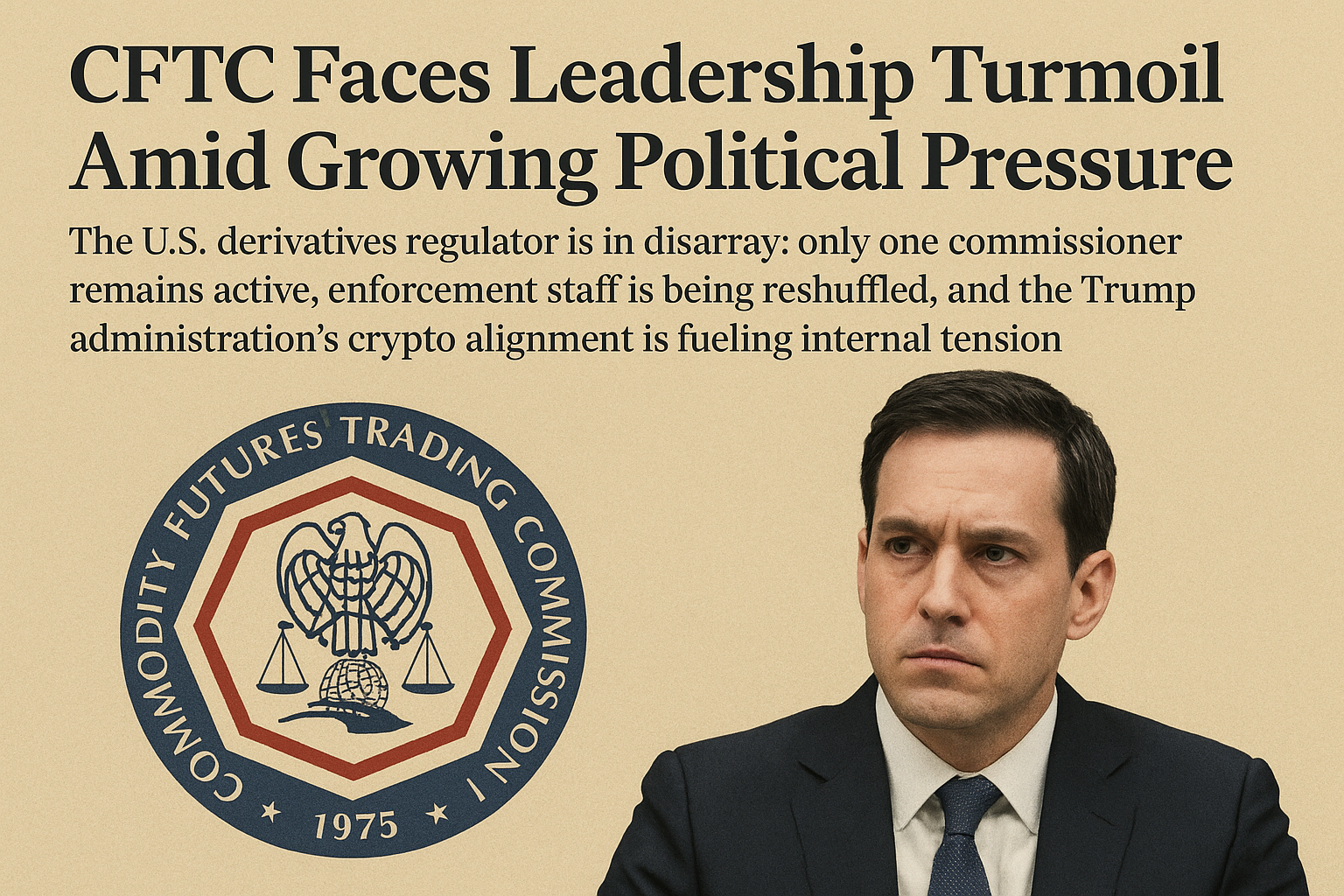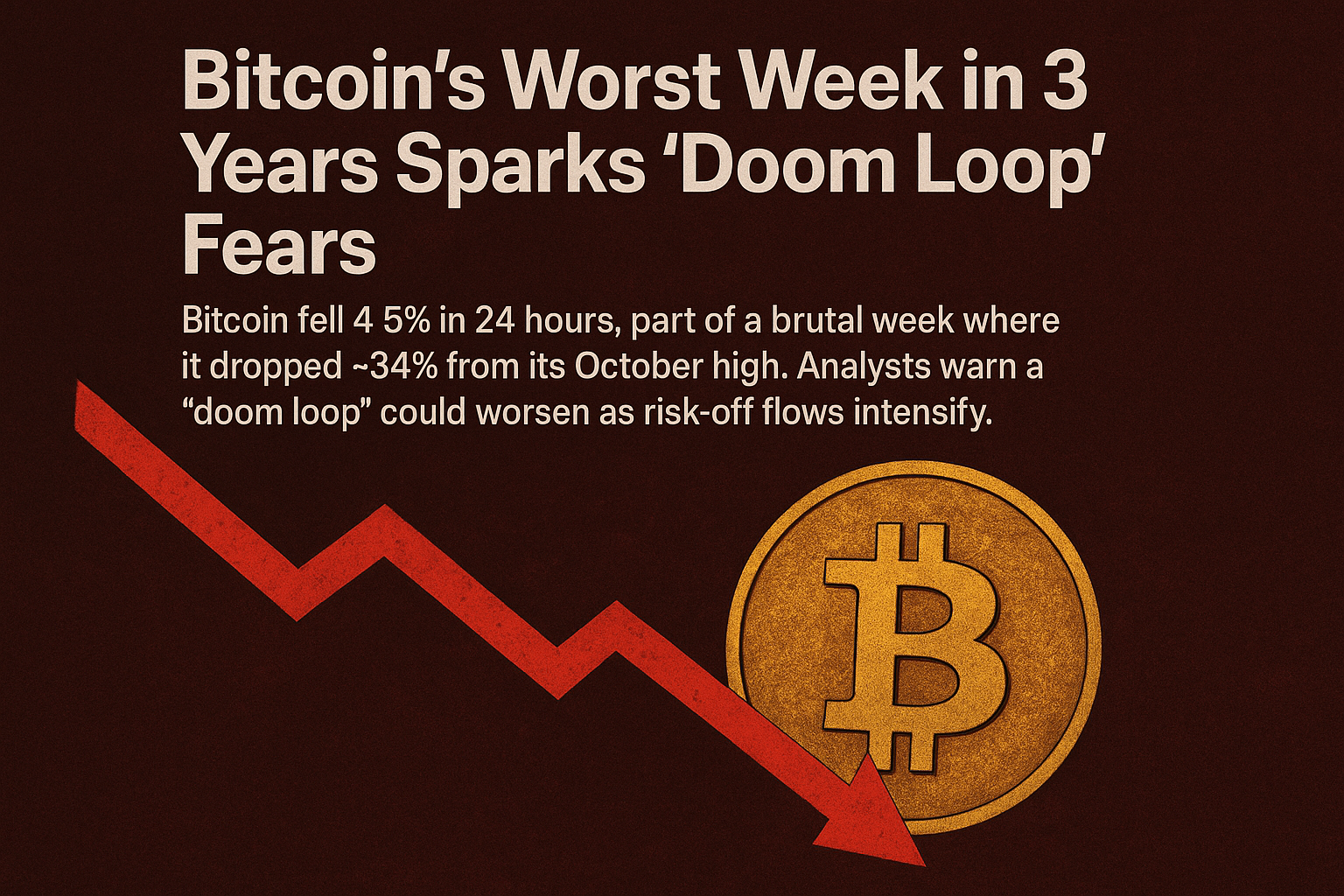The Commodity Futures Trading Commission (CFTC), the U.S. regulator overseeing derivatives and a key player in monitoring the crypto markets, is grappling with one of its most turbulent moments in recent history. Once regarded as a relatively stable and technocratic agency, the CFTC now finds itself under intense political pressure, internal disarray, and mounting questions about its future direction.
A Leadership Vacuum at the Top
At the heart of the crisis is the Commission’s leadership vacuum. Reports indicate that only one commissioner remains active, leaving the agency without the balanced, bipartisan oversight that has historically been one of its defining features. In the absence of a full roster of commissioners, the ability of the CFTC to make long-term policy decisions or provide clear regulatory guidance has been severely undermined.
This lack of leadership could not come at a worse time. Derivatives markets, which the CFTC regulates, have grown more complex in the wake of rapid innovations in digital assets. The demand for clarity on how the agency will treat cryptocurrency derivatives, decentralized exchanges, and stablecoin-based trading is greater than ever. Yet with so few decision-makers at the helm, the CFTC risks falling behind the pace of the markets it is meant to regulate.
Enforcement Uncertainty and Staff Shakeups
Beyond the empty seats at the top, the CFTC’s enforcement arm is also facing turmoil. According to reports, staff within the Division of Enforcement are being reshuffled, adding a new layer of uncertainty about the agency’s priorities. Historically, the CFTC’s enforcement division has played a critical role in prosecuting cases of market manipulation, fraud, and misconduct.
For the crypto sector, this is particularly significant. The CFTC has positioned itself as one of the primary watchdogs for Bitcoin and Ethereum derivatives markets. Any hint of instability or hesitation in enforcement could embolden bad actors, raising risks for investors and undermining trust in the system.
Political Pressures Intensify
Much of the current tension is being fueled by broader political battles over the future of crypto regulation in the United States. The Trump administration’s alignment with the digital asset industry has created sharp divisions within regulatory circles. Supporters of a pro-crypto stance argue that the U.S. risks losing ground to global competitors if it does not embrace innovation and provide regulatory clarity.
Opponents, however, worry that an overly permissive approach could expose markets to systemic risk, consumer harm, and financial instability. This debate has spilled over into the CFTC, creating a fractured environment in which commissioners, staff, and stakeholders pull in different directions.
Why It Matters for Markets
For traders and institutions active in U.S. derivatives markets, the CFTC’s current instability is more than just political drama. The agency plays a vital role in ensuring market integrity and investor protection. Its decisions—or lack thereof—can affect everything from commodity prices to the legality of certain crypto products.
If the leadership vacuum persists, the CFTC risks losing credibility not only with the markets but also with its international counterparts. Regulators in Europe and Asia are moving quickly to set frameworks for digital assets, and the U.S. cannot afford to fall behind.
What Comes Next?
In the short term, all eyes will be on the White House and Congress to see how quickly they can fill the vacant commissioner seats. Without a functioning leadership team, the CFTC’s ability to address pressing issues—such as stablecoin oversight, decentralized finance (DeFi) regulation, and cross-border cooperation—will remain limited.
Longer term, the situation raises a more fundamental question: should the CFTC continue to serve as the primary regulator for crypto derivatives, or should a new, dedicated digital assets regulator be established? This debate is gaining traction, and the current crisis may accelerate calls for structural reform.
The CFTC stands at a crossroads. With its leadership in turmoil and political pressure mounting, the agency faces a critical test of its resilience and relevance. Whether it emerges stronger, restructured, or sidelined will shape not only the future of U.S. derivatives regulation but also the trajectory of the global crypto markets.
For now, investors, policymakers, and industry leaders alike will be watching closely. The stakes could not be higher.




